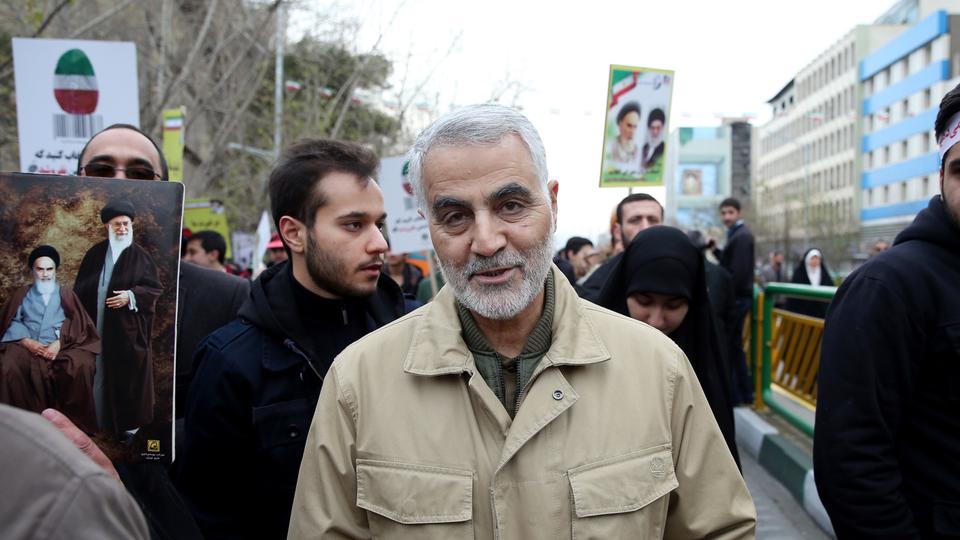
TRT WORLD
Iraq
Mahdi Army: The group, also known as Jaysh Al-Mahdi (JAM), was formed in 2003 by Iraqi Shia cleric Muqtada Al-Sadr, the son of Grand Ayatollah Mohammed Sadiq Al-Sadr who is the leader of the Sadrist movement. Al-Sadr teamed up with a small group of 500 followers with the objective of expelling the US coalition that invaded the county that year. The estimated number of the militiamen later reached at least 10,000.
In its early years, Iran largely supported the group. Tehran provided arms and Lebanon’s Iran-backed Hezbollah helped to train the army, but Sadr began adopting anti-Iran policies in 2006 when he drifted away from the then Prime Minister Nouri Al-Maliki, who was backed by Tehran.
Sadr became one of the most influential figures of Iraqi politics with the 2018 elections as he re-established himself an anti-sectarian and anti-corruption leader.
Badr Organisation: The group is part of the PMF. It is considered Tehran’s oldest proxy in Iraq. Its leader, Hadi Al-Amri, renamed the group, once known as the Badr Brigades, when he joined since the constitution bans paramilitary groups from political participation and he was poised to run in the 2018 elections.
Hashd Al-Shaabi: Also referred to as the PMF, Hashd Al-Shaabi is the umbrella military unit embracing the largest Shia armed groups, Badr Organisation and the Mahdi army. It’s largely funded and commanded by Iran, which is predominantly Shia.
In fact, Iran’s Revolutionary Guards stepped in as advisers and trainers to those militia groups under the umbrella of Hashd Al-Shaabi, while Iran began providing funds and armories to more than 100,000 Hashd fighters. The Hashd Al-Shaabi’s second man, Abu Mahdi Al-Mohandis, pledged allegianceto Iranian commander Qassem Sulaimani in early 2017.
It was founded after 2014 after Iraq’s Shia cleric Ayatollah Ali Sistani called to defend the country from Daesh since the Iraqi army was too weak to do so. The group played a key role in defeating Daesh in the country, but is also accused of human rights abuses. Human rights organisations, such as Amnesty International and Human Rights Watch, have documented major crimes against Iraqi Sunnis.
Made up of more than 50 sub-groups, Hashd Al-Shaabi also includes a few Yazidis, Christians and some Sunni tribal leaders that have fought alongside the group.
A year later, in 2016, Iraq’s parliament passed legislation legitimising the PMF as an independent organisation within the Iraqi army. Sistani, who is known for rejecting the Iranian model of theocracy, opposed the group’s involvement in the politics and expressed his discomfort with Iranian influence in the country. The group, however, managed to step up its influence in the Iraqi political sphere with the defeat of Daesh.
Syria
National Defence Forces (NDF): The Syrian paramilitary organisation was formed in 2012 in support of the Syrian regime with the help of Iran and Hezbollah. Iran has been the main backer of Syrian President Bashar Al-Assad in the eight-year war.
The NDF was created through merging and restructuring the pro-regime Popular Committees and Shabiha, pro Assad thugs, taking Iran’s Basij resistance Force as a leading example. It played an important role in keeping the Assad regime strong in its fight against opposition forces in the country, but is also blamed for human rights abuses by international rights organisations.
Fatemeyoun Brigades: This is an affiliate of the Iranian Islamic Revolutionary Guards Corps (IRGC) that was originally created to defend the shrine of Sayyeda Zeinab outside of Damascus before the Syrian war broke out in 2011. It is made up almost entirely of Shia Afghans and refugees. The force fought in the front lines of the war alongside regime forces.
Lebanon
Hezbollah: The group is an internationally blacklisted political and militant organisationprimarily based in Lebanon under the leadership of Hassan Nasrallah. Its creation dates back to the 1980s following Israel’s invasion of Lebanon. Iran helped create and sponsor the guerilla group, fortifying it with weapons, fighters and assistance. The United States and other Western nations have named it a terrorist group.
In Lebanon, Hezbollah’s political party leadsthe pro-Syrian March 8 faction, while it remains heavily involved in the Syrian war. The group opposes the West and Israel and seeks an Iranian-style autocracy.
No comments:
Post a Comment